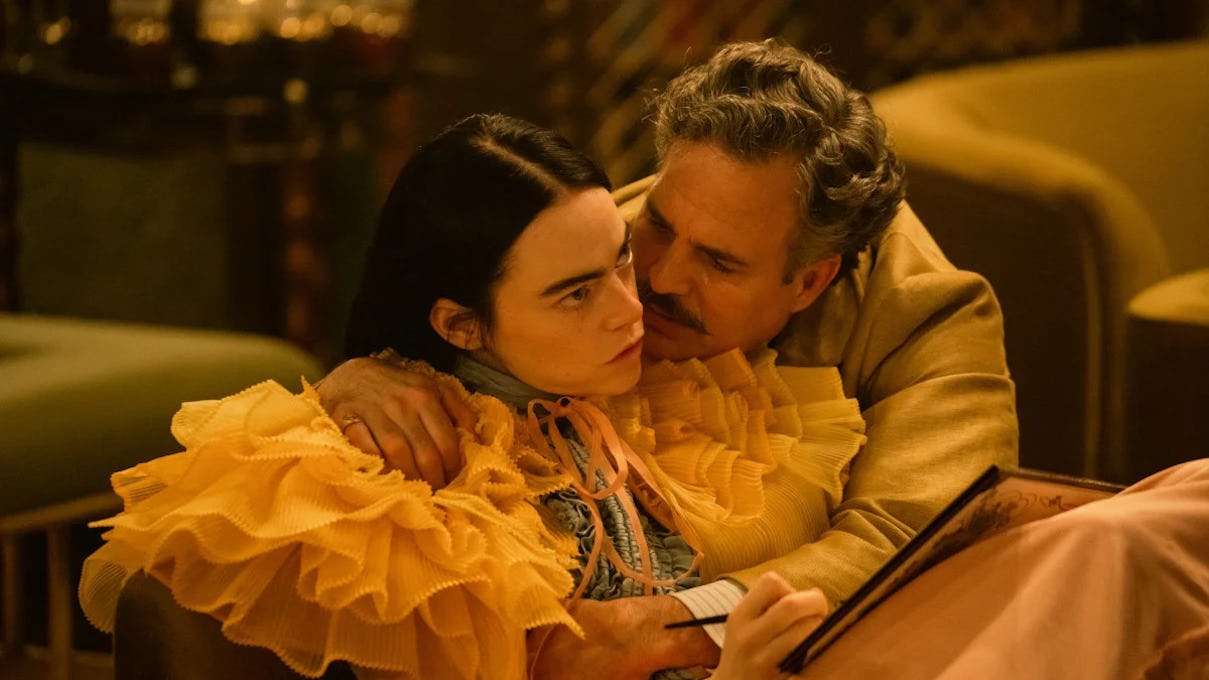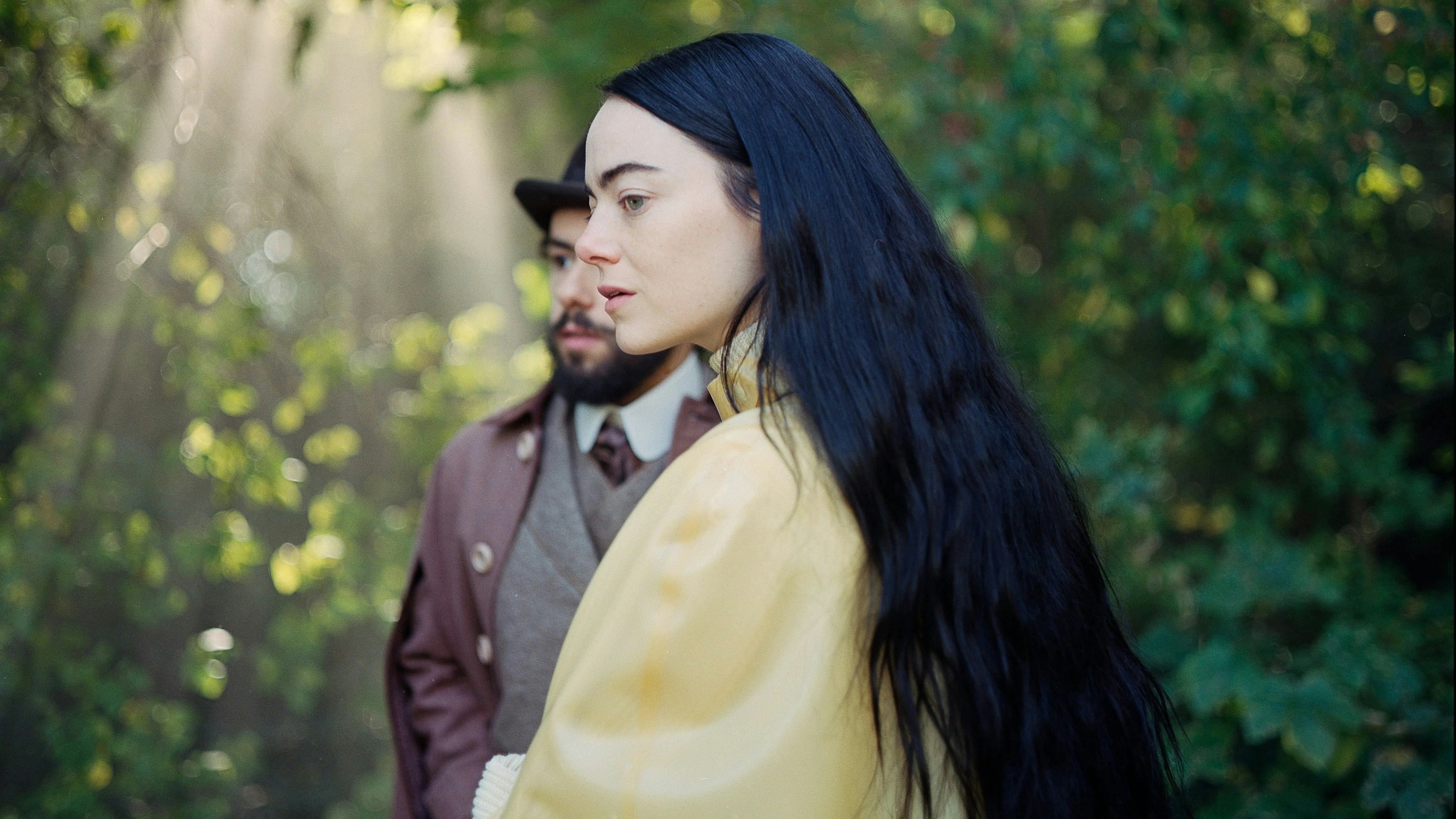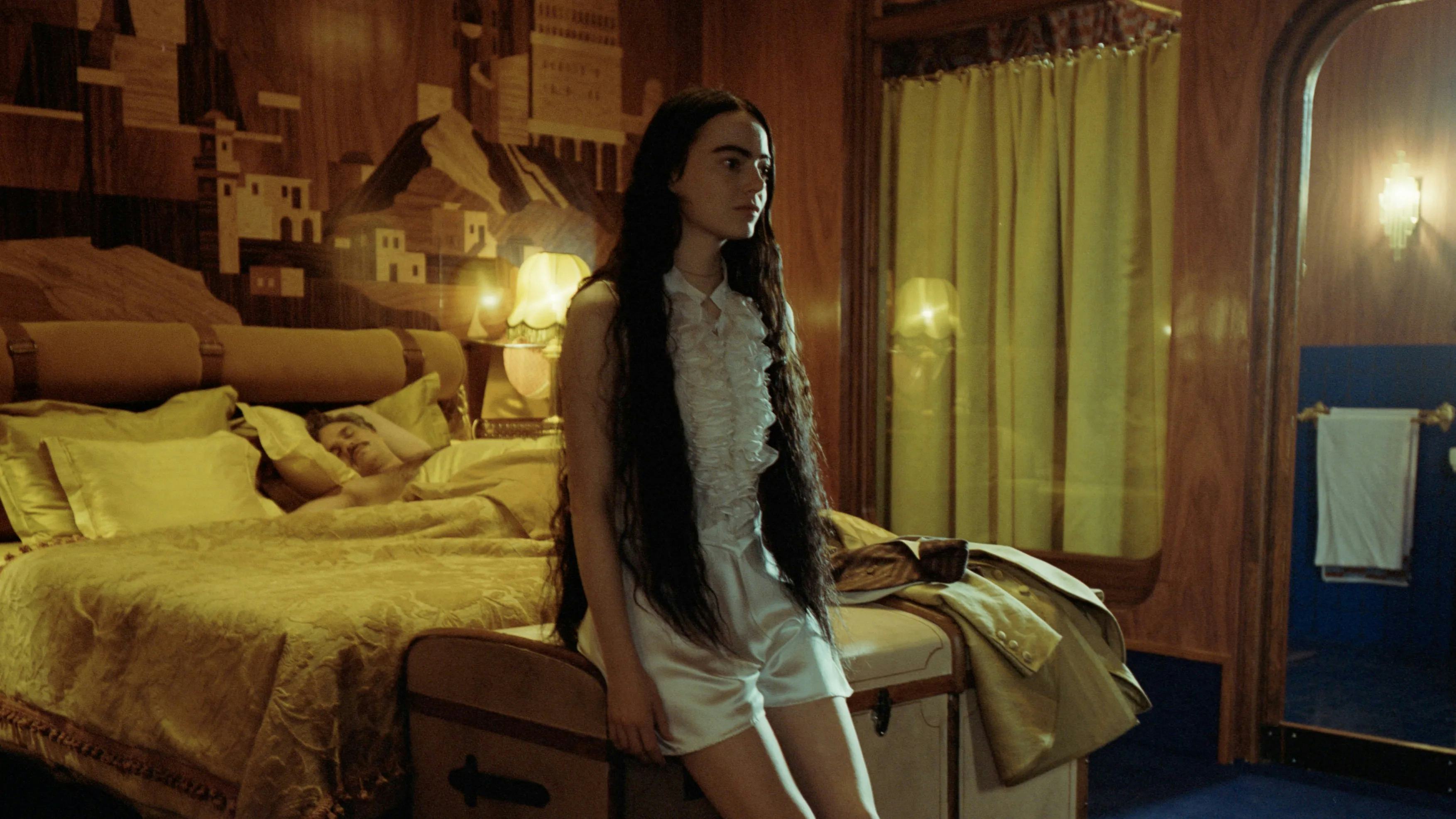
“We are all cruel beasts.”
This line, spoken in Poor Things, is actually at odds with the movie’s message, and more in line with what we’d typically expect from Yorgos Lanthimos as a chronicler of life’s cold, oddball characters. His new film, screened in competition at the Venice Film Festival, is surprisingly moving… as well as deliciously foul-mouthed. Slicked with sexy abandon, Poor Things takes Alasdair Gray’s “unfilmable novel” from 1992 and surgically transforms it into a mordantly funny fairytale about female agency and bodily autonomy. Flamboyant, florid, fantastic, and freakish, this might well be one of the most unique movies you’ll ever see.
While Yorgos Lanthimos has won legions of fans for his curt and absurd protagonists, he’s also earned his fair share of criticism for failing to write characters that connect to audience members or emote in a recognizable way. That might all change with Emma Stone’s Bella Baxter, whom you root for entirely with her gangly limbs, unfiltered speech, sexual liberation, and big-hearted empathy. That isn’t to say that the Greek director has lost any of his idiosyncratic weirdness, honed forensically through a series of increasingly popular features; this is a bildungsroman of epic proportions with an enormous scope to match, replete with endless bizarre details, aphorisms, and animals (swan-dog, pig-chicken, etc.) to make us goggle and gawk throughout.

In Victorian London (but not as we know it), the physically deformed scientist Dr. Godwin Baxter (Willem Dafoe) has lovingly — if irresponsibly — saved the life of a young woman who jumped off a bridge by transplanting the brain of her unborn baby into her own head and re-animating her (yep). He christens her Bella (Emma Stone) and sets to work accelerating her mental development to match her body with the help of Max McCandles (Ramy Youssef), a budding surgeon who comes to love this gleefully unfettered woman-child. Finding herself to be “a flawed, experimenting person” who is into masturbating in a big way, Bella decides that before she is married off to a life of relative imprisonment with Max and her father, she must see and explore the world, setting off for a sexual odyssey with debauched lawyer Duncan Wedderburn (Mark Ruffalo, never more hysterically funny than this).
As Bella orgasms her way through Lisbon before barrelling through several other countries on her travels, she begins to learn the truth about her sheer lack of independence at the hands of men, all of whom seek to subdue her. Poor Things manages to explore the ways that men try to control and manipulate women without being preachy or heavy-handed, while still simultaneously being dramatic, funny, and absurd — a juggling act that Lanthimos pulls off with aplomb.

Similarly, Emma Stone is an actress who can elicit sympathy and laughs in equal measure, playing the emotionally stunted Bella with a sharp intelligence and knack for comic timing; it is a fearless and freewheeling performance that demands a lot physically, which she performs free from self-conscious inhibition. The script, written by The Favorite’s Tony McNamara, is blue and bawdy; the characters are akin to children in a fable, and although the script is obviously heavily indebted to Frankenstein, in Poor Things, Bella is the beauty and everyone around her is the monster, cannily inverting our expectations.
Taking inspiration from the vast and artificial sets of filmmakers like Fellini, as well as Powell and Pressburger, to create a new world fit for their very modern kind of protagonist, James Price and Shona Heath’s production design is unlike anything else you’ve ever seen. The painstakingly built studio sets are on a gargantuan and inventive scale. We’re taken from locales in London to Lisbon, Paris, Alexandria, and a cruise ship at sea, all rendered as if Antoni Gaudí had designed Whoville at the turn of the 20th century. Every detail is sumptuous and strange: this writer is seriously coveting Bella Baxter’s ruffle-and-frill-filled wardrobe, with huge sleeves that look like a pair of pastel kidneys growing only more stupendously opulent, ruffled and ridiculous in each scene. Director of Photography Robbie Ryan once again deploys a fish-eye lens to make the edges of the frame curve, warp and swirl, like we are ourselves mad scientists viewing proceedings through a medical lens.
That is to say: the hype was high, and somehow Lanthimos has crafted a masterpiece that seems set to surprise and delight both his fans and critics. How lucky we are to watch something so tantalizingly twisted and unendingly fun, a sui generis oddity about sexual euphoria filmed and acted by craftspeople at their absolute peak.







